How exactly does one define happiness? Exploring the business of joy, the Sci-Fi/Drama Little Joe arrives to select U.S. theaters on Friday, December 6th, 2019, thanks to Magnolia Pictures.
At Planthouse, a cutting-edge biotech corporation, workaholic scientist Alice (Emily Beecham: Hail, Caesar! 2016, Daphne 2017) has genetically engineered a new breed of plant. The vibrant orange-red floral hybrid produces oxytocin, the mothering hormone, and has been designed to deliver happiness to its human caretaker; thereby creating a perfect symbiotic relationship. A game-changer, the applications for this “happy plant” are seemingly endless and are guaranteed to open new doors in the biotech world.
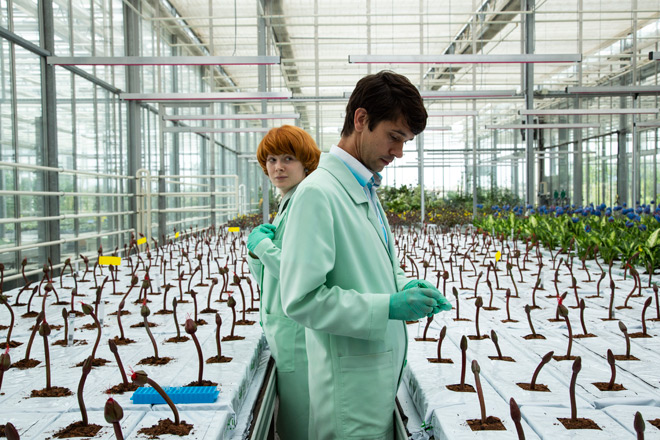
In order to craft such a groundbreaking specimen, single-mother Alice has not been the most attentive mother to her teenage son, Joe (Kit Connor: Slaughterhouse Rulez 2018, Rocketman 2019), for whom the plant (“Little Joe”) has been named. Adding to the tension at home is a mountain of stress at work: the pressure to rush safety testing on Little Joe to meet deadlines, as well as thwarting the casual advances of co-worker Chris (Ben Whishaw: Cloud Atlas 2012, Mary Poppins Returns 2018).
This all comes to a head when covert signs begin to point toward trouble with Little Joe. As those with exposure to the plants begin to undergo slight personality changes, Alice and her team will be forced to question if there is any evidence to prove that nature has found a way to mutate their creation into a human pathogen.
Clocking in at 103 minutes, Little Joe was directed by the talented Jessica Hausner (Hotel 2004, Lourdes 2009), who co-wrote the film alongside Géraldine Bajard (Lourdes 2009, The Edge 2010). The film also features the acting talents of Kerry Fox (Shallow Grave 1994, Bright Star 2009), Jessie Mae Alonzo (Hetty Feather series), David Wilmot (Intermission 2003, Anna Karenina 2012), Phénix Brossard (Departure 2015, Benjamin 2018), Sebastian Hülk (Hanna 2011, Red Sparrow 2018), and more.
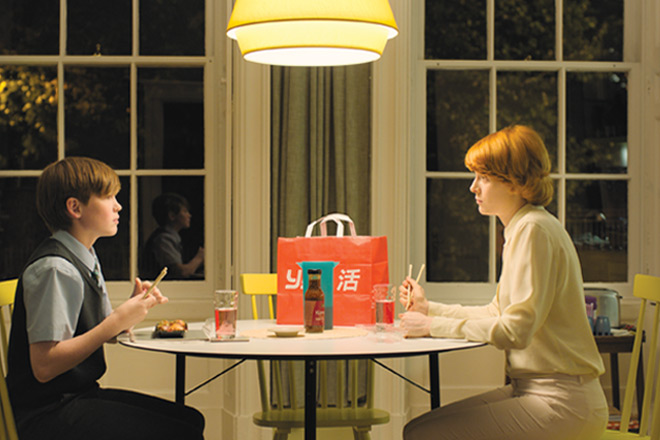
Billed as a Sci-Fi/Drama blend, Little Joe definitely fits this billing. However, it’s important to note that this is the realistic realm of Science Fiction, a story that, at its most basic level, involves the genetic engineering of plants to create a living, breathing antidepressant. As with many films that tackle the topics of biotechnology and medical research, Little Joe is meant to raise a multitude of existential questions. Much like in Michael Crichton’s 1990 Sci-Fi novel Jurassic Park, Little Joe explores a tale where nature finds a way to side-step man—except without the dinosaurs.
Prospective viewers should understand going in that Little Joe is a sedate offering that is much more about the questions raised than any over-the-top scenarios, action, adventure, or gore. Instead, this is an aesthetically pleasing journey that serves as the impetus for intelligent discussion and some potentially sensitive debate. The film succeeds at being enjoyable to watch much in thanks to the eerie, often Asian-influenced sounds of its quirky score that beautifully accentuate the on screen tension, the colorful moods of Martin Gschlacht’s (Women Without Men 2009, Goodnight Mommy 2014) exquisite cinematography, and its impeccable cast.
Heading up that cast is Beecham, who is sophisticated and confident in her role as the scientist Alice. Effortlessly fashionable and carrying herself with class, she perfectly represents a modern professional woman: an intelligent hard-worker who is torn between career and family; struggling to balance her passion for her research and her love for her son. Able to effectively communicate a vast array of emotions with her understated body language, Beecham is elegant on the screen as she struggles with her work and home life.
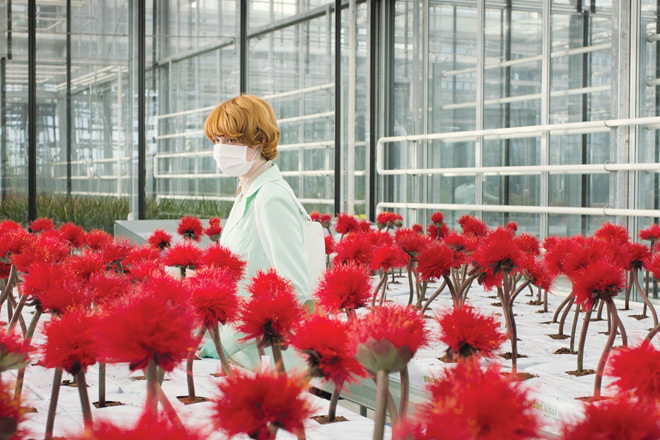
Connor is easily able to match Beecham’s talents, flawlessly depicting a young man who is beginning to come of age, questioning his life and starting to resent his absent mother. Flawlessly communicating the nuances of his complicated role, Connor makes Joe a stand-out character and not simply a supporting role. Instead, by no fault in his acting, Whishaw’s Chris is relegated to the shadows, and his flat-character merely provides additional tension for Alice. Perfectly awkward in his adoration for his superior, Whishaw delivers a solid performance in his role.
All of this said, perhaps Little Joe’s biggest take away—its comparison of antidepressants to a disembodied, “happy” complacency—is apt to be controversial and offensive to some. In this, one must understand that this film is a look at the existential horrors inherent in the never-ending pursuit of happiness: the great lengths that humanity is willing to go to fabricate joy while also pondering exactly what that contentment looks like. Rather than being needlessly offended by Hausner’s brilliant film, ask yourself what does happiness mean to you? Is it a streamlined consistency that comes from a pill (or, in this case, a plant), or is it something that cannot be easily swallowed?
Whatever your answer, Little Joe is a truly intriguing and intelligent film. For its high brow take on Sci-Fi, Cryptic Rock give Little Joe 5 of 5 stars.
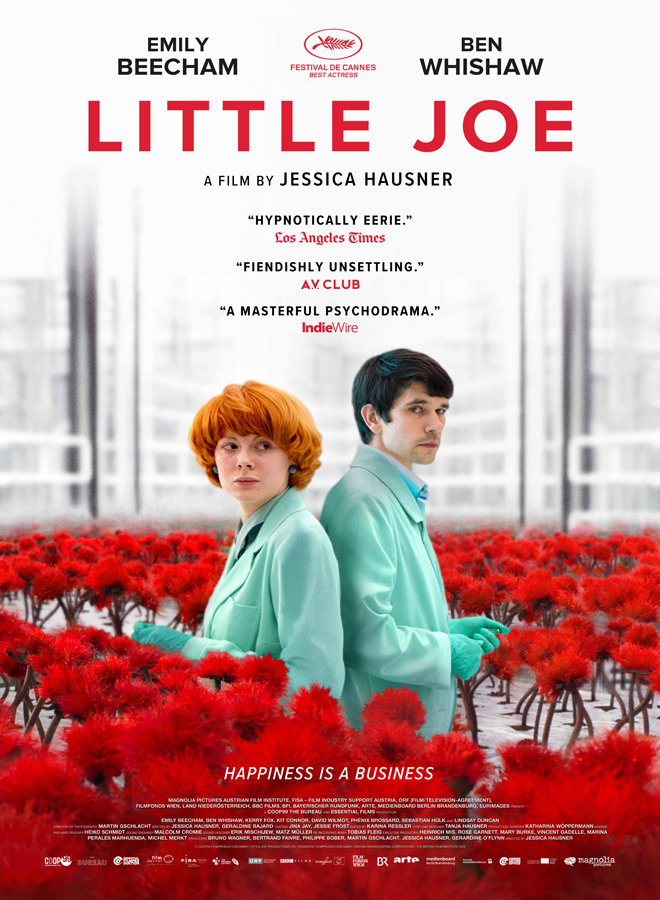
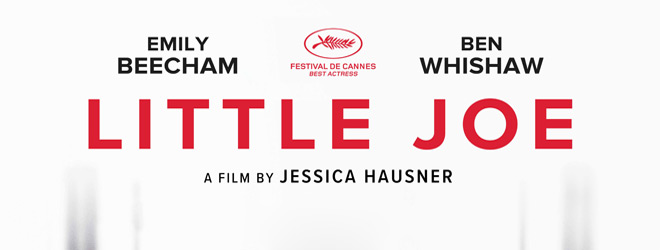
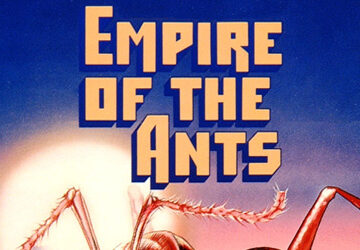



No comment